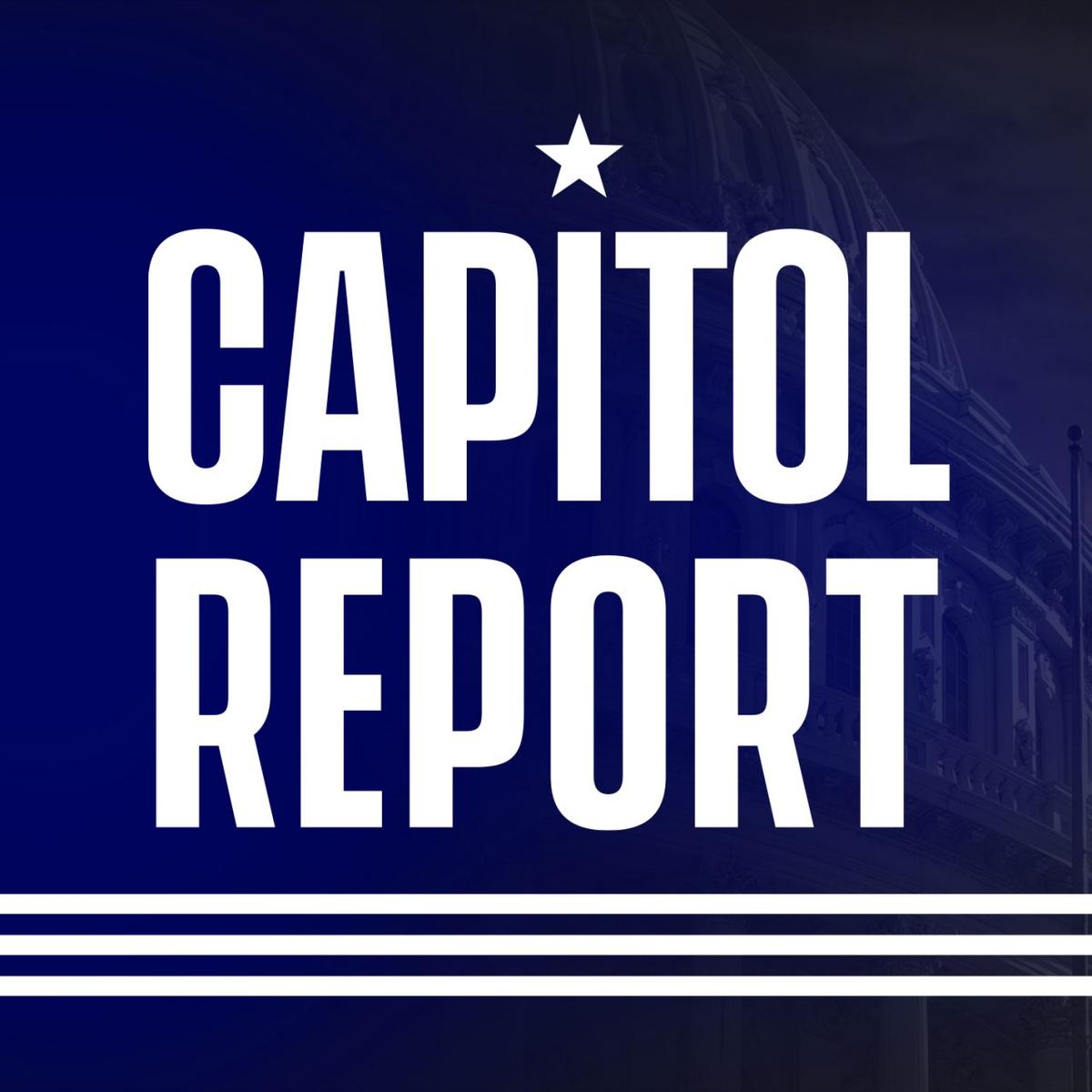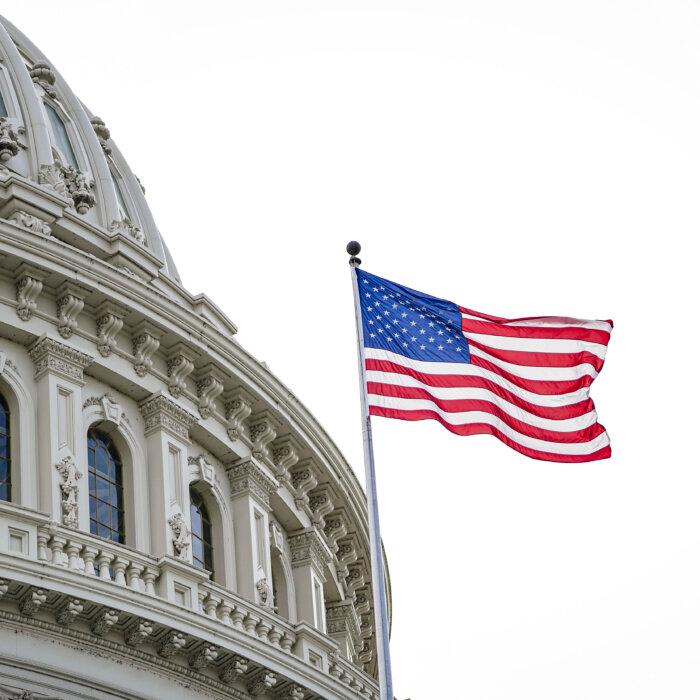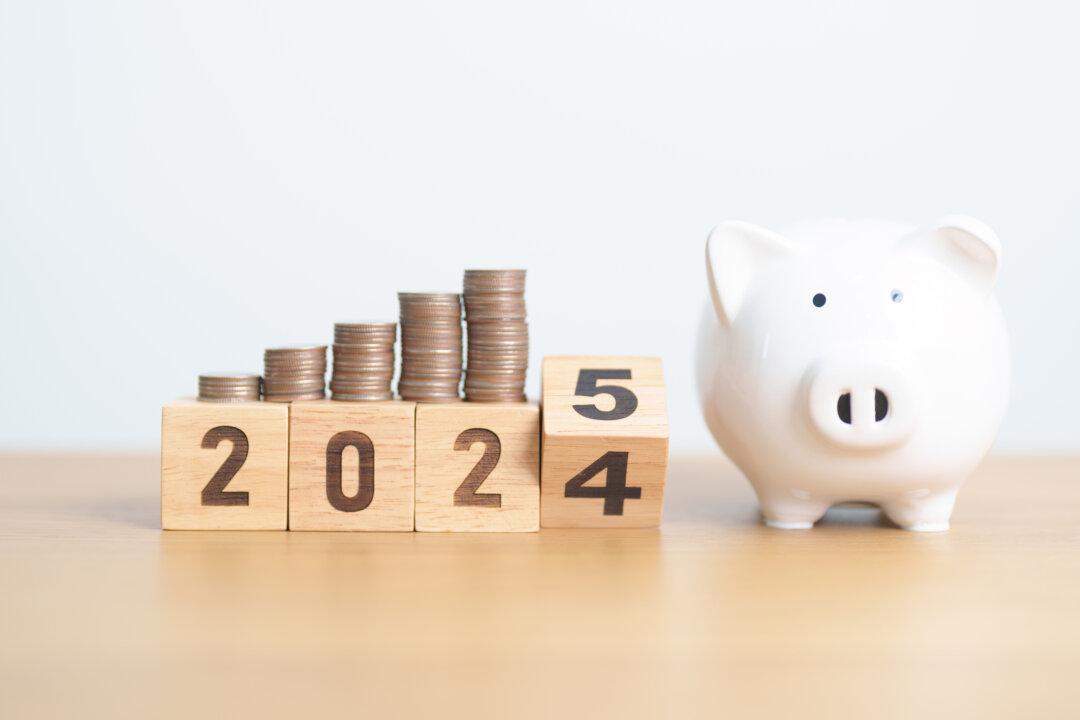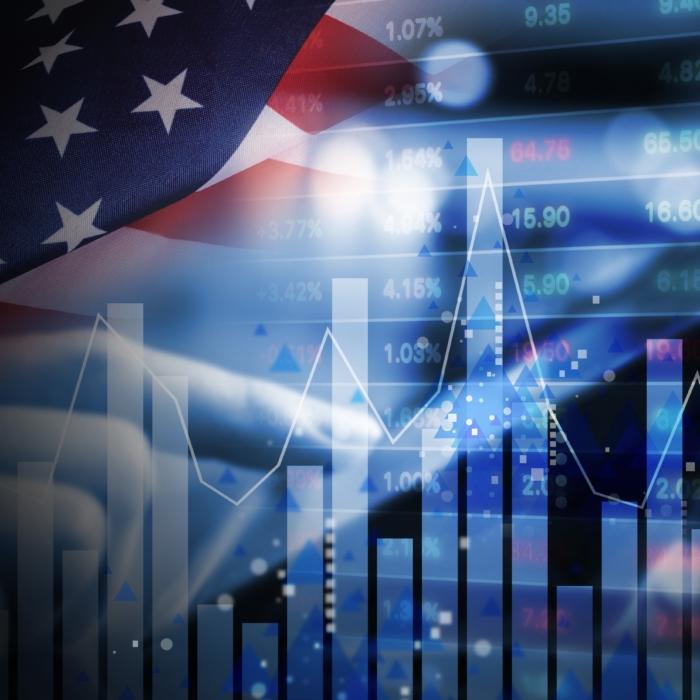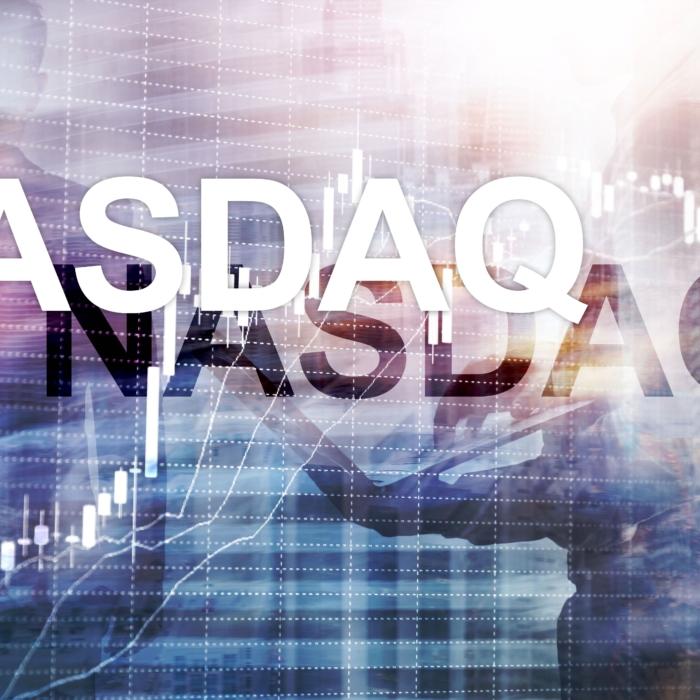Tariffs on China Reach 145 Percent After Latest Increase, White House Clarifies
A White House official confirmed that the new tariff rate on Chinese products now totals 145 percent, not 125 percent as the president suggested earlier.
premiere
[PREMIERING 9PM ET] Inside China’s Stranglehold on the Global Medicine Supply Chain: Rosemary Gibson
Rosemary Gibson is a national authority on health care policy and patient safety, and the author of ‘China Rx’.

John Adams’s Integrity and the Boston Massacre
In this new installment of ‘When Character Counted,’ attorney John Adams risked the loss of his reputation and livelihood in his passion for justice.

250 Years Ago, Part 4: The Salem Gunpowder Raid and Leslie’s Retreat
On the road to the Revolutionary War, defiant Patriots give the British a prelude of battles to come.

The Importance of Myth and Why We Should Understand It
Myth is not the opposite of truth; it’s a way of getting at deeper truths.
Most Read
Top Stories
Breaking
Supreme Court Upholds Order to Return Man Mistakenly Deported to El Salvador Prison
The high court ruled that the man should be given due process of law upon return.
Six Dead After Helicopter Crashes Into Hudson River Near Manhattan
Videos posted to social media showed the helicopter mostly submerged while appearing upside down in the water.
House Passes Budget Plan to Advance Trump’s Agenda
The House approved a revised blueprint to unlock a bill for Trump’s tax cut, border, and energy measures.
Tariffs: The Big Picture
An overview of how tariffs work, their benefits and the challenges they present.
How Chinese Imports Are Leveraged in Cyberattacks
Chinese-made devices have been repeatedly exploited as part of a Beijing-backed effort to undermine and destabilize the United States.
US May Use Law Firms Striking Deals With Trump to Work on Trade Negotiations
The president said ‘a lot of countries’ want to make deals ’that are proper for the United States’ and the firms can help negotiate those trade agreements.
European Union in Talks to End Tariffs on Chinese Electric Vehicles
The moves come as the Trump administration increases tariffs across the world with a growing focus on China.
House Democrats Warn Elon Musk Must Leave Government Role After 130 Days
The Democrats say that Musk cannot stay in his special government employee role after May 30.
New Data Reveal Significant Increase in Oil and Gas Reserves Discovered in Gulf of America: Interior Department
The department will no longer require an environmental impact statement for approximately 3,244 oil and gas leases in seven Western states.
Day in Photos: Forest Fire in Scotland, Dust Storm in Iraq, and High-Security Prison
A look into the world through the lens of photography.
Swiss Drugmaker Novartis to Invest $23 Billion to Expand US Manufacturing, Operations
The company plans to build or expand 10 facilities and bring 100 percent of its key medicines’ production inside the United States over five years.
▶Shen Yun’s Performance Is ‘Incredible,’ Says Representative of New York State Senator
On April 4 and April 5, Shen Yun Performing Arts was met with a full house again at the David H. Koch Theater at Lincoln Center in New York City.
Tracking Trump’s High Level Appointments, Senate Confirmations
The Senate is undertaking the confirmation process for the president’s new administration.
Consumer Spending Holds Firm Amid Tariff Pressures, Bank of America Finds
Spending stayed resilient last month as American consumers—especially wealthier households—continued to buy.
RFK Jr. Says US Is Launching Massive Effort to Pinpoint Cause of Spiking Autism Rates
‘By September, we will know what has caused the autism epidemic, and we’ll be able to eliminate those exposures,' the health secretary said.
OpenAI Countersues Musk Over Alleged Harassment
Musk had sued OpenAI alleging anti-competitive conduct and violation of its charitable mission.
Retail Egg Prices Continued to Rise in March, Data Show
Prices reached a record high of $6.23 per dozen in March, according to the government’s inflation data.
Senate Confirms Paul Atkins as New SEC Chair
A longtime adviser to crypto currency firms, Atkins is expected to take a friendly approach to crypto regulation.
Erdogan Meets Pro-Kurdish Politicians in Bid to End Decades of Violence
The Turkish president met two parliamentary deputies from the Ankara Parliament supportive of the ethnic group at his presidential palace in Ankara.
USPS Seeks to Raise Stamp Price to 78 Cents to Achieve Financial Stability
A proposed 5-cent increase would mark a 56 percent rise in stamp prices since 2019, as USPS continues its push for long-term financial stability.
A Difficult Pardon: A Tortured POW and the Choice to Forgive
Tortured WWII veteran Eric Lomax spent much of his adult life imagining ways to kill his captors; he never dreamed forgiveness would be in the cards.
Special Coverage
Special Coverage




















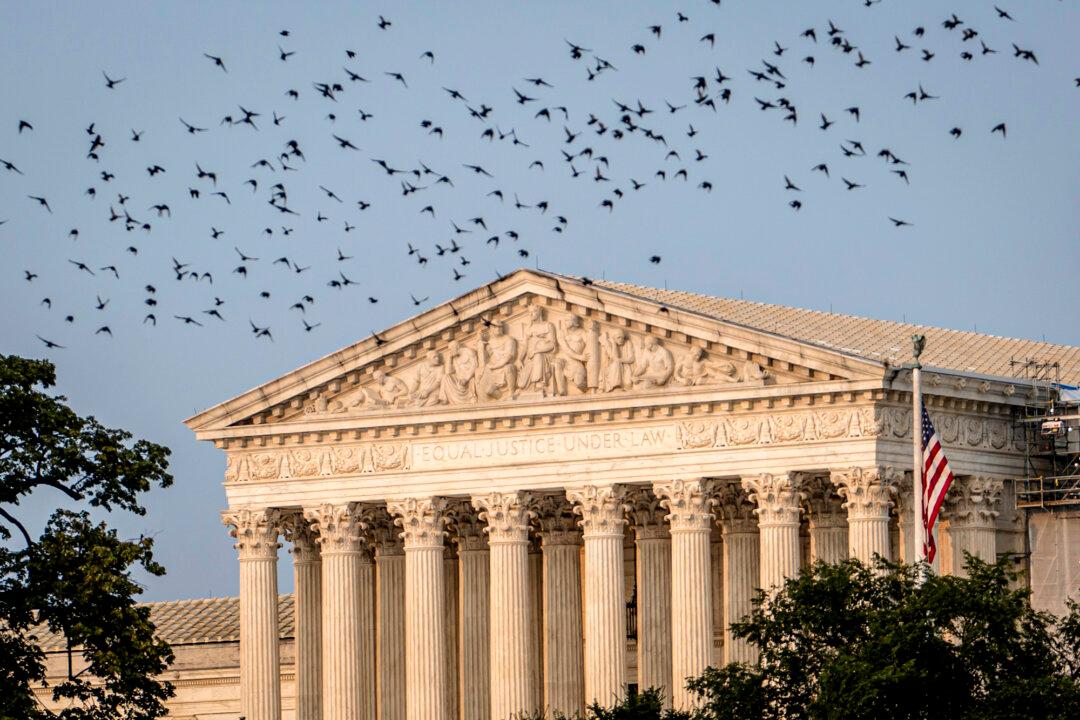
















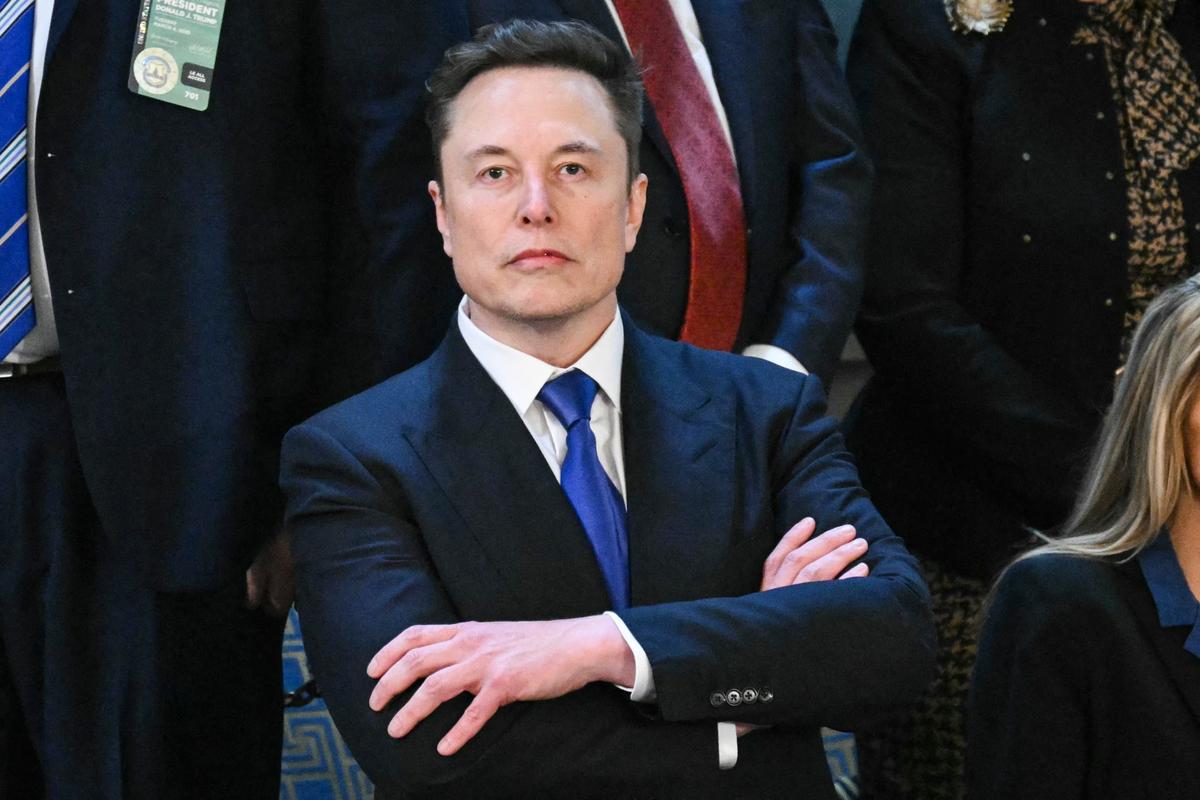
























![[PREMIERING 9PM ET] Inside China’s Stranglehold on the Global Medicine Supply Chain: Rosemary Gibson](https://www.theepochtimes.com/_next/image?url=https%3A%2F%2Fimg.theepochtimes.com%2Fassets%2Fuploads%2F2025%2F04%2F10%2Fid5839860-250410-ATL_Rosemary-Gibson_HD_TN_Final-600x338.jpg&w=1200&q=75)

![[LIVE Q&A 04/11 at 10:30AM ET] Inflation Goes Down Amid Trade War; Trump Fires Back at CCP | Live With Josh](https://www.theepochtimes.com/_next/image?url=https%3A%2F%2Fimg.theepochtimes.com%2Fassets%2Fuploads%2F2025%2F04%2F10%2Fid5840055-041125_REC-600x338.jpg&w=1200&q=75)













